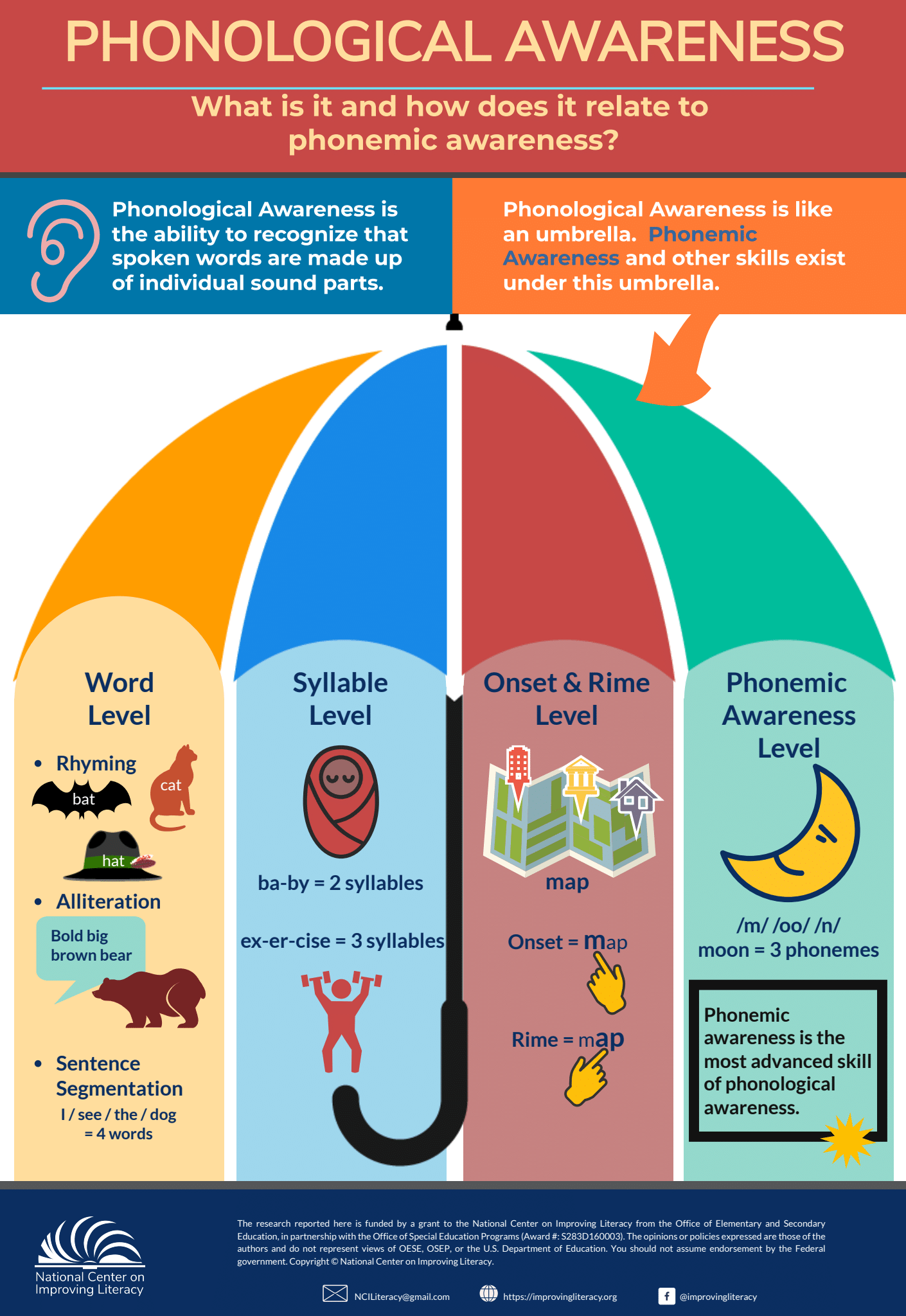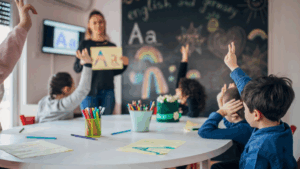Phonological Awareness is the ability to recognize that spoken words are made up of individual sound parts.
Word Level Rhyming
-
bat
-
cat
-
hat
Alliteration
-
Bold big brown bear
Sentence Segmentation
-
I / see / the / dog = 4 words
Syllable Level
-
ba – by = 2 syllables
-
ex-er-cise = 3 syllables
Phonological Awareness is like an umbrella. Phonemic Awareness and other skills exist under this umbrella.
Onset & Rime Level
-
Onset = map
-
Rime = map
Phonemic Awareness Level
-
/m/ /oo/ /n/ moon = 3 phonemes
Phonemic awareness is the most advanced skill of phonological awareness.





